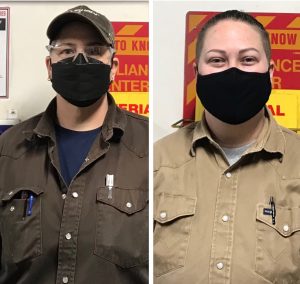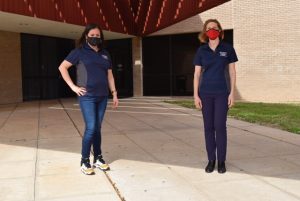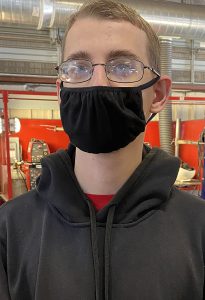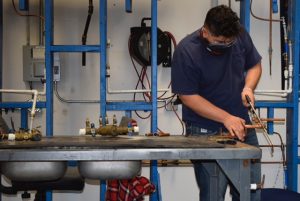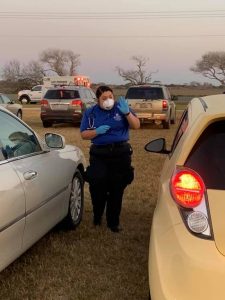(MARSHALL, Texas) – Marshall High School juniors and seniors are being encouraged to think about their futures beyond graduation.
Dual enrollment classes through Texas State Technical College and the Marshall Independent School District’s Mav Tech program are one way to do that.
“Our main focus is to increase the numbers in dual enrollment,” said Garreth Durrant, MISD’s career and technical education and STEM (science, technology, engineering and mathematics) coordinator. “I would say the challenge is being able to allocate the funding to get more students enrolled and participating in dual enrollment.”
Marshall High School students are taking TSTC classes this year online in the Business Management Technology and Health Information Technology programs, as well as in person on TSTC’s Marshall campus for the Diesel Equipment Technology and Welding Technology programs.
“The Mav Tech program does continue to gain interest, and presents a terrific opportunity for students to explore careers in STEM fields,” said Barton Day, provost of TSTC’s Marshall campus. “We continue to work alongside MISD partners to increase awareness of these very affordable head starts to college completion and great careers.”
Durrant said the goal of the Mav Tech students is to graduate from high school with dual credit hours or complete a certificate awarded by TSTC.
“They are getting a lot out of it,” he said. “There are challenges. The challenges are simply based on the maturity level of the students. They have to want to do it.”
Durrant said the school district designated a computer lab at the high school for students to take online TSTC classes. Dual enrollment classes are included in the students’ schedules so that they have designated times and days to be in the lab.
TSTC and the school district announced the initiative in 2017. Technical programs are chosen to fit in with the high school’s career clusters that students are grouped into.
Durrant said he and Kadie Svrcek, TSTC’s dual enrollment recruitment representative, have worked to let the high school students know about the array of technical programs available to them. Durrant said the COVID-19 pandemic slowed down plans that the entities already had to promote Mav Tech.
“I can see eventually things are going to pick up and things are going to get better,” Durrant said.
TSTC is also working with the Longview Independent School District, Panola Charter Schools, Queen City Independent School District and Waskom Independent School District to offer dual enrollment opportunities for students this year. These are separate from the Mav Tech initiative.
For more information on Texas State Technical College, go to tstc.edu.

